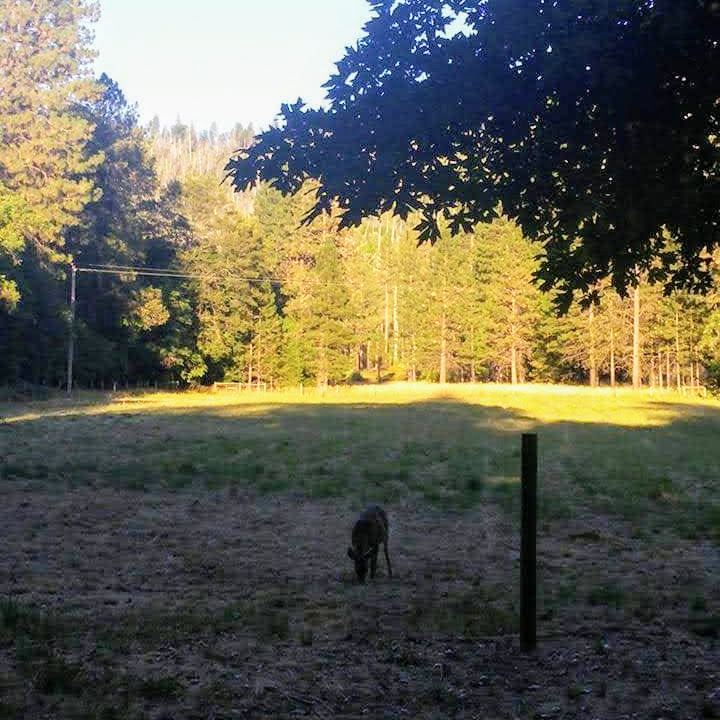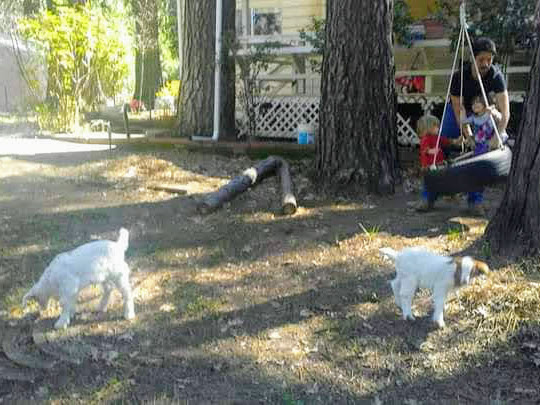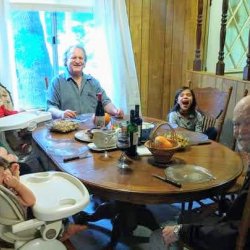After having been forced to relocate after experiencing severe flooding in their home in rural Peru, Kristen and her family are no strangers to disaster. Kristen, a California native, met her husband Luis while living in Peru before moving the family back to Concow to their new “forever home.”
Their home in Concow was surrounded by “beautiful cedar trees, towering over the house and a meadow. It had deer running around in the front yard. Lots of trees and a big yard. Dad was excited about [the outdoors] to play with his grandkids,” says Kristen.
Away from the lights and planes, it was “a more woodsy, family environment,” she said. They were so taken with the trees that they even named one of their new twins after them; Cedar.
When the Camp Fire began, Kristen’s dad had been sick, so the family of six was out visiting him. Their home and everything in it was lost. The family ended up in a small condo in Chico after the fire, and recovery didn’t really begin for their family until they found their new home in Oroville, purchased with the help of the small insurance settlement they received.
That’s where GRID Alternatives North Valley and our Disaster Recovery Initiative in Butte County came into play. We are active members of the Camp Fire Long Term Recovery Group, and support efforts to build affordable housing while integrating clean and resilient energy technology solutions for fire survivors.
We started working with Kristen’s family in late 2019, nearly a year after the fire. “With solar, we had lots of questions and anxiety around permanency. With the new fire [the North Complex fire began Aug. 17th, 2020], the same feelings come back...we are scared to own and buy stuff. What if we have to move? What if there is another crisis? What will we be responsible for?” said Kristen.
“The fire has really shown that we are a strong family. We can make the best of it and move forward,” she continued.
Getting solar with GRID Alternatives has helped Kristen’s family during their recovery, mostly by alleviating some of Kristen and Luis’s pressure to meet their monthly mortgage payments. Since the fire, Luis, a self-employed mechanic, has had to repurchase his costly equipment, and Kristen has had to restart her career in a new organization. The expenses of starting over, along with last summer's $400 a month electricity bill on top of the mortgage, were all stressors that impacted their children’s ability to participate in activities that help them socialize. 
Now that they’ve had solar installed and have seen and felt the savings, they can put away money for investing in their new home, visiting family, and “little things like garden beds to help make life feel better,” Kristen explained. “The savings go to living, not PG&E.”
Recovery from a wildfire takes many years and involves many little steps towards rebuilding a sense of normalcy. Receiving the solar system truly allowed Kristen and her family to worry less about affording to live, and spend more time rebuilding together. They were so pleased with their system that they referred a friend to our program who had electricity bills of up to $1300 a month. “It’s been such a blessing, so we wanted to share,” said Kristen.
Devastating wildfire and increased fire risk leading to longer and more frequent utility public safety power shutoffs are impacting vulnerable families. Our disaster recovery initiative supports efforts to build affordable housing while integrating clean and resilient energy technology solutions like battery storage for fire survivors to alleviate some of those disparate impacts. We also contribute our organizational capacity and technical expertise to a number of regional efforts related to affordable housing, climate change, and energy resiliency, and disaster recovery.
You can help support more families like Kristen’s with clean energy benefits that also help the planet by making a donation or becoming a sustaining GRID member today!

